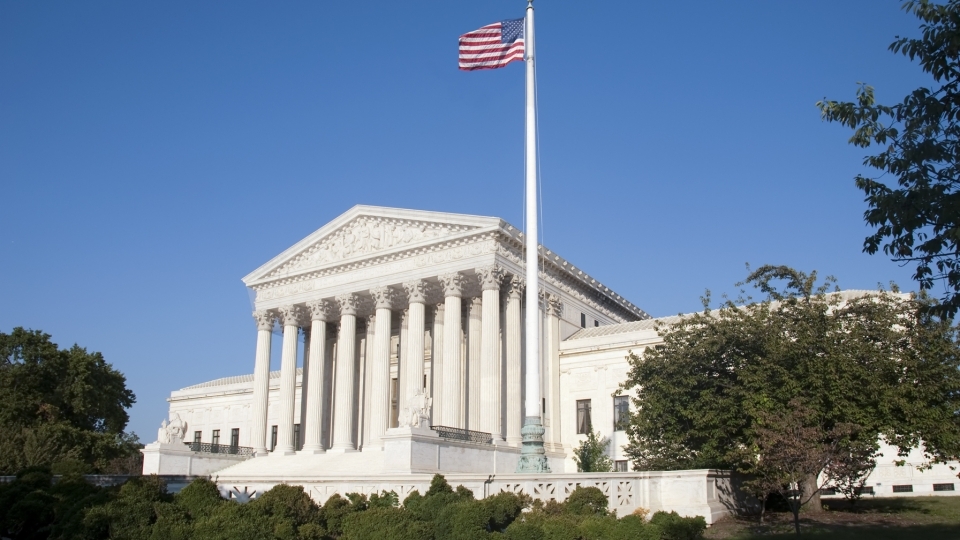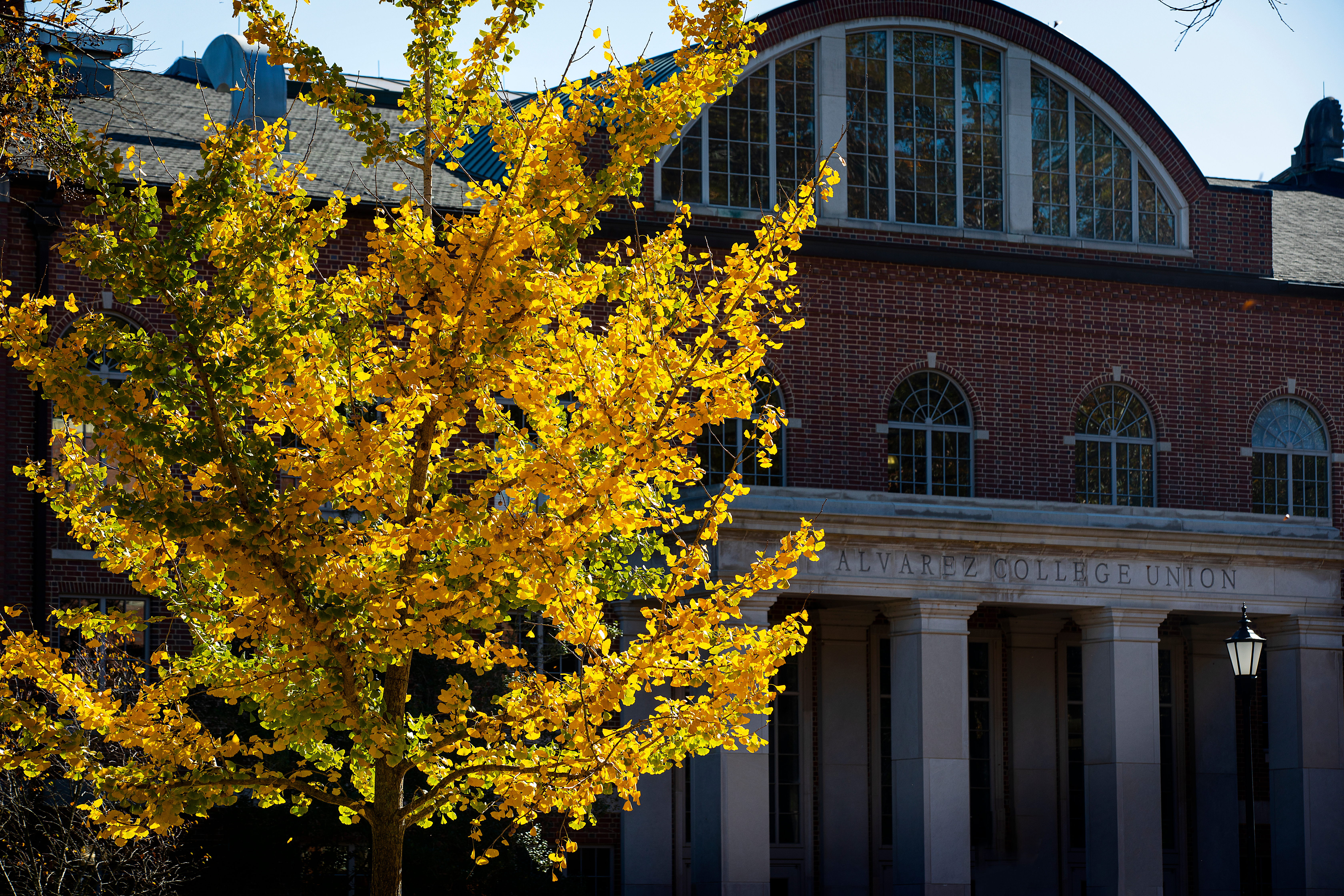QandA: Supreme Court Kicks Off Term Under Pressure. What Would Court Reform Look Like?
October 7, 2024
- Author
- Jay Pfeifer

The Supreme Court of the United States kicked off its 2024-2025 term in the spotlight. After a series of controversial decisions, news reports about Justice Clarence Thomas’s relationships with donors and speculation about the role the Court might play in the 2024 presidential election, the Court is facing high levels of scrutiny.
Andrew O’Geen, a professor of political science, studies the Supreme Court and teaches classes on the Constitution. He put the state of the nation’s highest court in context.
The Supreme Court’s reputation seems a little tarnished these days. Public opinion polls show that favorable opinions of the court are at a three-decade low. How concerned should we be about that?
It used to be the case that we had a very clear distinction between institutional support for the Court and support or opposition to their opinions. Most people thought in the abstract, that the Supreme Court is a legitimate and trustworthy institution even if they didn’t agree with their decisions case-by-case.
Political scientists still make this distinction. But I think in public discourse, it's becoming harder to think of those things as inherently distinct from one another.
What we are seeing is that peoples’ regard for the institution is declining. For a very long time, the Supreme Court was the envy of all political institutions because public opinion about it was very high.
There's certainly been a downward trend over the last 15 or 20 years.
Why is that?
First of all, the Court doesn't really look like the rest of the country, politically and ideologically. The majority on the Court is much more conservative than the country is as a whole.
We are a pretty moderate country if you aggregate opinion. But the majority of the Court is pretty conservative. I think a lot of people look at the Court and say, you know, those types of decisions don't really reflect my values.
I also think the recent stories about Justice Thomas’s ties to donors are damaging to the institution's legitimacy.
When those things bleed together — worries about institutional legitimacy and disagreement with decisions and outcomes — people start thinking in different ways about what the Court's doing.
It seems like confirmation hearings and all the attendant media coverage is so focused on single issues or reducing justices to conservative or liberal. What effect might that have on how we feel about the Court?
When that's what people read, when all the public discourse about the Court focuses on the ideology of the justices, that's the way people will tend to think about it. It's also true that most people are not going to dive into these opinions in detail and spend time thinking about the nuances of decisions. What that means is that we are all subject to the biases we get from news. It can have a compounding effect.
This summer, President Biden proposed a handful of reforms for the Court. The first was implementing an ethics policy for the justices. How new is that idea and what would it take to make that effective?
It’s not a new idea. Federal judges are all subject to some pretty rigid ethics rules. All the proposal would do is bring the Supreme Court justices in line with the same code of ethics federal judges already must follow. And in that sense, it's not particularly radical. But it could go a long way toward restoring some trust in the institution.
Why has the Supreme Court been exempt from an ethics policy?
It’s how we've viewed the Court all along; like they're separate and above.
Basically, we’ve banked on the inherent virtue of the Supreme Court justices, and trusted them to be capable of policing themselves.
And I think, historically that was enough. There were instances where there were problems — Abe Fortas in the 1960s is one example — but, by and large, it hasn’t been an existential issue.
It's like a lot of other things in American politics, it has perpetuated in this informal way simply because people have just lived that way for a really long time and it only really becomes a problem when it becomes a problem.
So what has to happen for that to change?
Well, Congress has to pass a law. And that would be the biggest barrier. Those are barriers that are in place for any sort of public policy. You just have to think about this one as a particularly heavily valenced policy. People feel strongly about it and so it might carry a bit more ideological or political baggage than your typical piece of legislation.
This proposal is not as radical as President Franklin Delano Roosevelt’s court-packing proposal, which a lot of people think of when they hear about changes to the Supreme Court. That would have been a structural shift on the court. This is just going to make a law that says the justices have to follow a widely accepted code of ethics.
But there are also electoral politics embedded in these kinds of things. If there is a proposal that the President — whatever party he or she represents — is interested in, the other party is likely going to see that as an opportunity to prevent the President from getting a win.
The other proposal is term limits for Justices. President Biden’s proposal pegs it at 18 years with sitting Presidents appointing Justices every two years. What do you think about that?
One of the arguments against term limits is that lifetime appointment creates a certain independence for the justices and insulates them from career or partisan political pressures. And that's normatively good for all kinds of reasons.
But it's also true that if you serve 18 years, you still retain some of that independence.
The reality is that until fairly recently, most justices didn't serve that long. Being a justice has historically been a career capstone.
It wasn't really the case that 45-year-olds who could serve for 30 years or more were being appointed.
I think when there is more turnover, you are more likely to get a Court that is more in line with whatever is going on contemporaneously.
President Biden also proposed a constitutional amendment that negates the Court’s recent decision about presidential immunity.
That’s interesting. It doesn’t happen often but there are some examples historically of constitutional amendments that were passed in response to Supreme Court opinions.
The 11th Amendment, which is about state immunity, is a pretty obscure one that no one ever thinks about but it was passed in direct response to a court case.
But the bar for constitutional amendment is very high. The effort and capital it takes to pass legislation or to advocate for ethical standards is not the same as the effort and capital needed to amend the Constitution.



